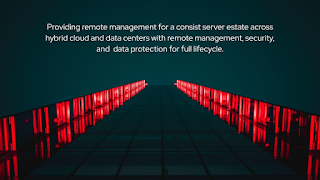 |
| Part 1 - An architectural introduction |
It's an interesting challenge creating architectural content based on common customer adoption patterns. That's very different from most of the traditional marketing activities usually associated with generating content for the sole purpose of positioning products for solutions. When you're basing the content on actual execution in solution delivery, you're cutting out the chuff.
What's that mean?
It means that it's going to provide you with a way to implement a solution using open source technologies by focusing on the integrations, structures and interactions that actually have been proven to work. What's not included are any vendor promises that you'll find in normal marketing content. Those promised that when it gets down to implementation crunch time, might not fully deliver on their promises.
Enter the term Portfolio Architecture.
Let's look at these architectures, how they're created and what value they provide for your solution designs.
To get an idea of what these architectures look like, we refer you to the following published series:
What's that mean?
It means that it's going to provide you with a way to implement a solution using open source technologies by focusing on the integrations, structures and interactions that actually have been proven to work. What's not included are any vendor promises that you'll find in normal marketing content. Those promised that when it gets down to implementation crunch time, might not fully deliver on their promises.
Enter the term Portfolio Architecture.
Let's look at these architectures, how they're created and what value they provide for your solution designs.
The process
The first step is to decide the use case to start with and in this case the focus was on how customers and organisations are able to manage remote servers across their data centers, private, and public clouds. The key here is to provide consistency, security, and full lifecycle management across their diverse hybrid cloud architecture.
The case we're tackling here is focusing on Remote Server Management. This use case we've defined as the following:
The case we're tackling here is focusing on Remote Server Management. This use case we've defined as the following:
Providing remote management for a consist server estate across hybrid cloud and data centers with remote management, security, and data protection for full lifecycle.
The approach taken is to research our existing customers that have implemented solutions in this space, collect their public facing content, research the internal implementation documentation collections from their successful engagements, and where necessary reach out to the field resources involved.
Now on to the task at hand.
What's next
The resulting content for this project targets the following three items.- A slide deck of the architecture for use telling the portfolio solution story.
- Generic architectural diagrams providing the general details for the portfolio solution.
- A write-up of the portfolio solution in a series that can be used for a customer solution brief.
An overview of this series on remote server management portfolio architecture:
Next in this series, taking a look at the generic common architectural elements for a remote server management architecture.
- An architectural introduction
- Common architectural elements
- Example remote architecture
Next in this series, taking a look at the generic common architectural elements for a remote server management architecture.
(Article co-authored by Iain Boyle, Chief Architect Retail, Red Hat)

No comments:
Post a Comment
Note: Only a member of this blog may post a comment.